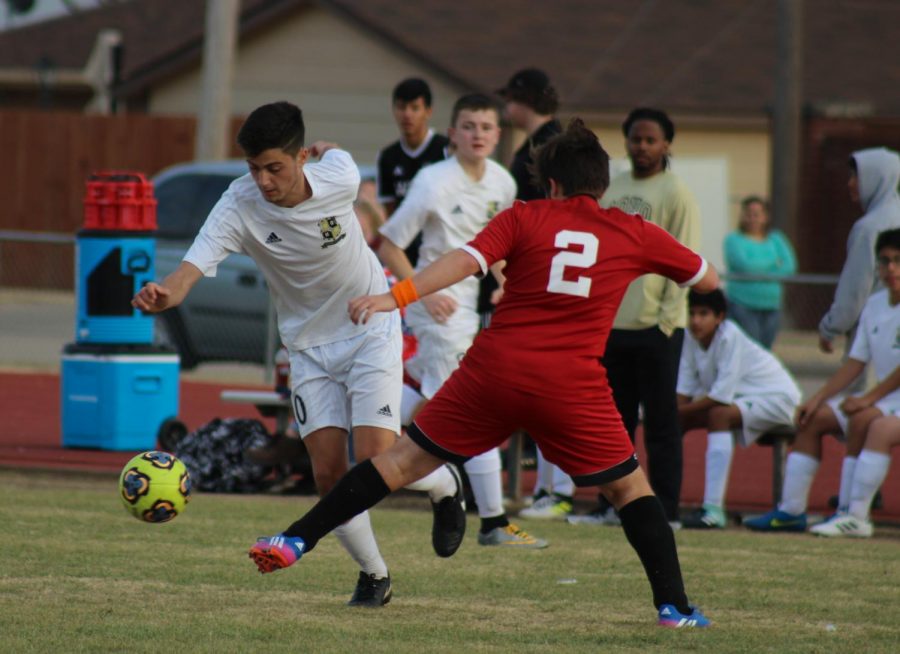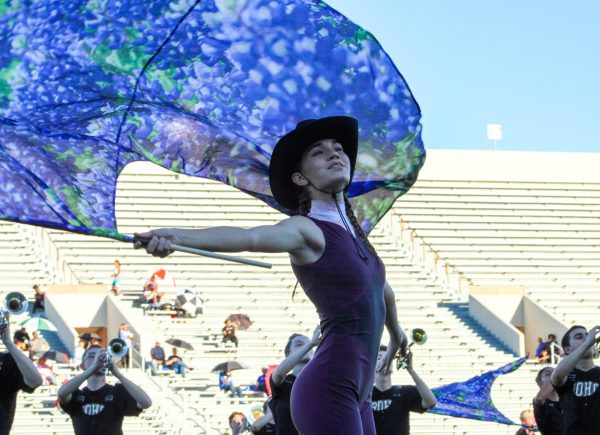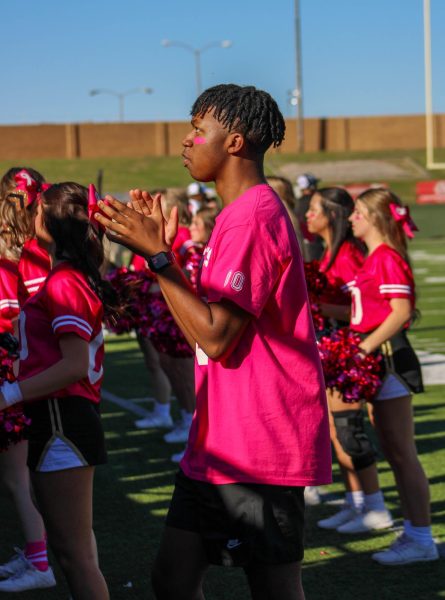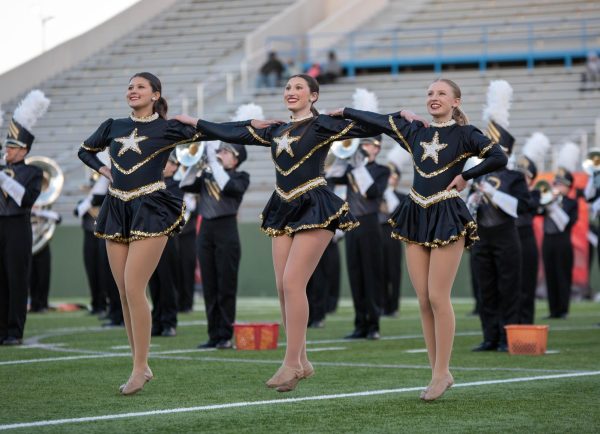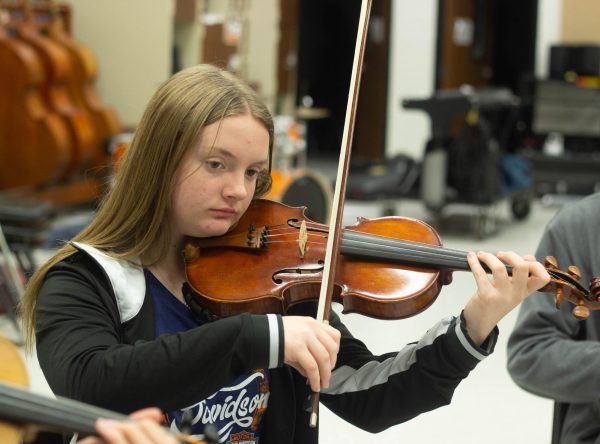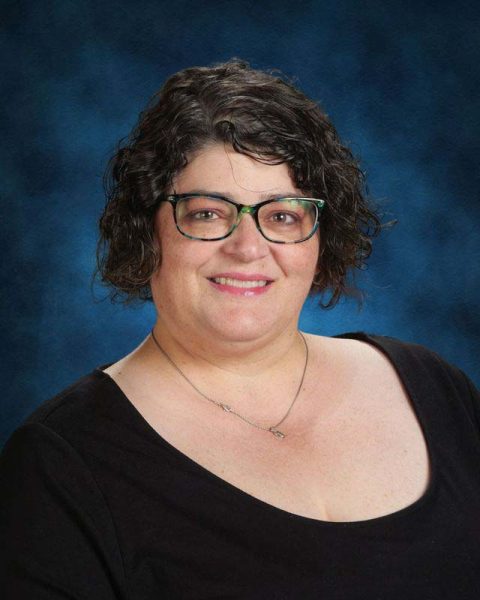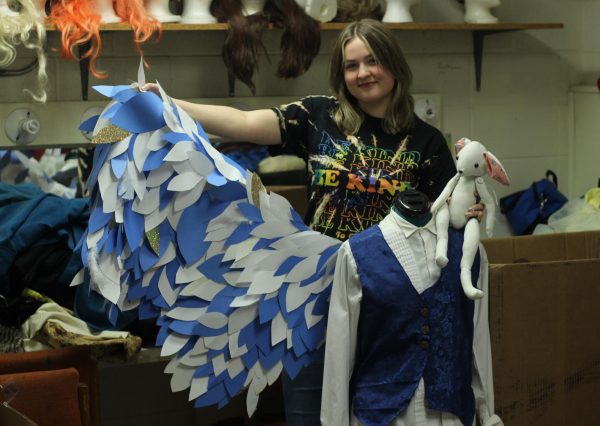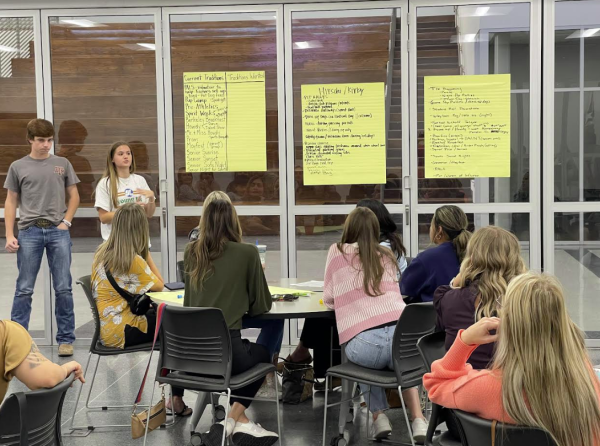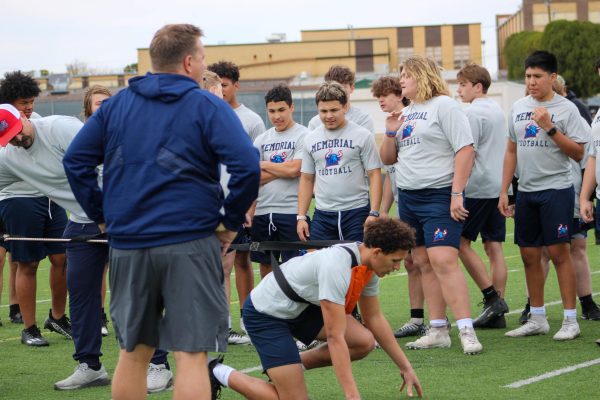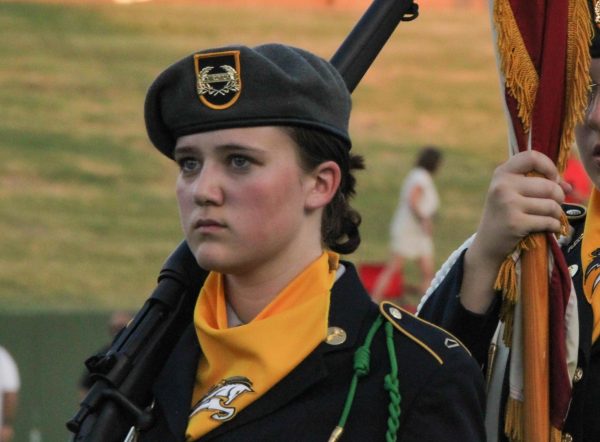A Different Perspective
Students from overseas explain their experiences in America
Alex Cascia during a JV Boys soccer game against Old High on Jan. 26, 2018
Imagine waking up tomorrow morning in France, surrounded by a culture that’s seemingly alien-like. Now imagine having to live there, with only the knowledge of the country gained through pop culture. For some students at Rider, that was their experience arriving in America for the first time.
“It’s very different from the things you see in European movies. Not everything is like Los Angeles or Miami,” said junior Alex Cascia. “Everything is different; the school system, the food, the streets. It’s another world.”
Cascia, as well as junior Andrea Repici, were both born in Italy but came to Texas through NATO’s Air Force program, which stationed their families near Sheppard Air Force Base. While Cascia moved to America for the first time in July 2016, Repici had previously moved Wichita Falls in 2006. However, his family temporarily went back to Italy in 2011 before returning in August 2017.
“It was kinda difficult to go back because it was almost like America was my home country; because I was so small when I was in Italy, and I didn’t remember anything. I almost didn’t remember my relatives,” said Repici. “This is where I actually ‘grew up,’ so it was kind of a shock going there.”
The NATO program provides families with a visa allowing them to stay in the country for four years unless they are legal American citizens. Not all of Rider’s foreign students are here under that visa though. Senior Okunyi Cham moved to Wichita Falls with his family in 2016 from Ethiopia for his father’s pharmaceutical job in the city.
“Before I moved here, I didn’t drive and I’ve never lived in a big city like this before,” said Cham. “Ethiopia’s not that big, so it’s all new for me; coming from there to here.”
In any case, the initial transition from another continent to the U.S. can be a stressful journey in itself.
“In Burkburnett, I was the only Italian kid in the school,” said Cascia. “I didn’t know anyone. Some teachers tried to help, but it wasn’t a big help, so most of the things I did it by myself. I found out a lot of things, and I’m still here, so I think it worked.”
According to both Cascia and Repici, the biggest challenge in settling into the change of scenery was adjusting to the way the school works. In Italy, the high school system is based on a block schedule that focuses on some subjects on one day, then others on the next. Not to mention there are five years of high school rather than four, the majority of the classes are of equal difficulty, each grade level typically consists of about 20 people, and getting involved in school activities isn’t prioritized over grades when it comes to getting into college. In America, teens usually start working at age 16; there, they wait until they’re finished with school to get a job.
“I just threw myself in trying to create myself, because here, it’s very important,” Repici said. “In Italy, we only study. You can do social work if you want to, but they look at your grades more than if you work.”
Getting thrown into a different world unprepared may seem terrifying, but getting the chance to have a life-changing experience that other people don’t have can be worth the struggle. Repici and Cascia have some helpful tips for future foreign exchange students looking at coming to America, whether it be for high school or college:
“Just try new stuff!” Repici said. “Like, get involved, most of all, because if you just stay by the side and not do stuff, you won’t make friends – well, you will make friends, but it’s a bit difficult to get in the groove of things with other people.”
It’s important to be prepared for anything, as the United States has a wide variety of subcultures, from New York to Florida to California.
“And I mean, be yourself; don’t try to be American, to be Americanized,” Cascia said. “It’s nice to have your own identity, and to have your own culture inside of you and you should be proud of that.”

